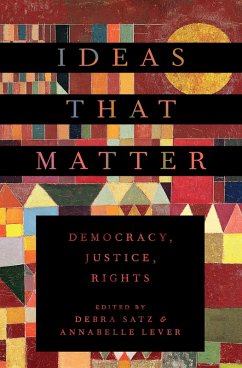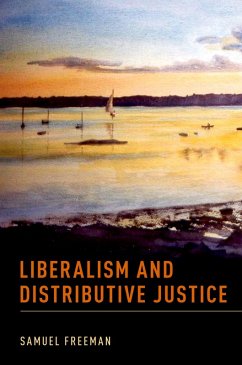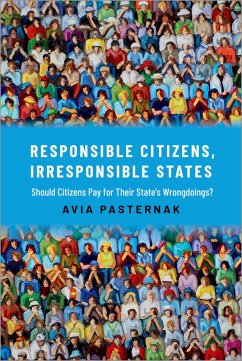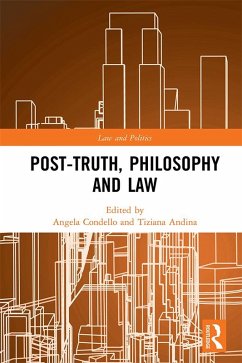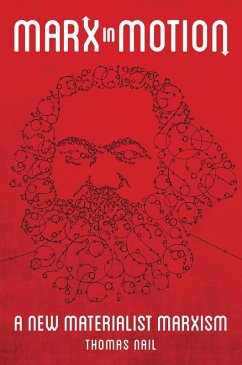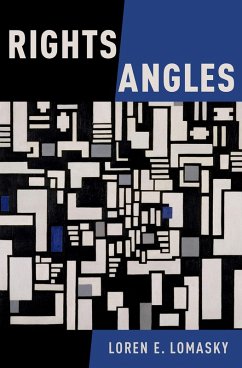
Pragmatism and Justice (eBook, PDF)
Versandkostenfrei!
Sofort per Download lieferbar
22,95 €
inkl. MwSt.
Weitere Ausgaben:

PAYBACK Punkte
11 °P sammeln!
The essays in this volume answer to anxieties that the pragmatist tradition has had little to say about justice. While both the classical and neo-pragmatist traditions have produced a conspicuously small body of writing about the idea of justice, a common subtext of the essays in this volume is that there is in pragmatist thought a set of valuable resources for developing pragmatist theories of justice, for responding profitably to concrete injustices, and for engaging with contemporary, prevailing, liberal theories of justice. Despite the absence of conventionally philosophical theories of ju...
The essays in this volume answer to anxieties that the pragmatist tradition has had little to say about justice. While both the classical and neo-pragmatist traditions have produced a conspicuously small body of writing about the idea of justice, a common subtext of the essays in this volume is that there is in pragmatist thought a set of valuable resources for developing pragmatist theories of justice, for responding profitably to concrete injustices, and for engaging with contemporary, prevailing, liberal theories of justice. Despite the absence of conventionally philosophical theories of justice in the pragmatist canon, the writings of many pragmatists demonstrate an obvious sensitivity and responsiveness to injustice. Many pragmatists were and are moved by a deep sense of justice-by an awareness of the suffering of people, by the need to build just institutions, and a search for a tolerant and non-discriminatory culture that regards all people as equals. Three related and mutually reinforcing ideas to which virtually all pragmatists are committed can be discerned: a prioritization of concrete problems and real-world injustices ahead of abstract precepts; a distrust of a priori theorizing (along with a corresponding fallibilism and methodological experimentalism); and a deep and persistent pluralism, both in respect to what justice is and requires, and in respect to how real-world injustices are best recognized and remedied. Ultimately, Pragmatism and Justice asserts that pragmatism gives us powerful resources for understanding the idea of justice more clearly and responding more efficaciously to a world rife with injustice.
Dieser Download kann aus rechtlichen Gründen nur mit Rechnungsadresse in A, B, BG, CY, CZ, D, DK, EW, E, FIN, F, GR, HR, H, IRL, I, LT, L, LR, M, NL, PL, P, R, S, SLO, SK ausgeliefert werden.





